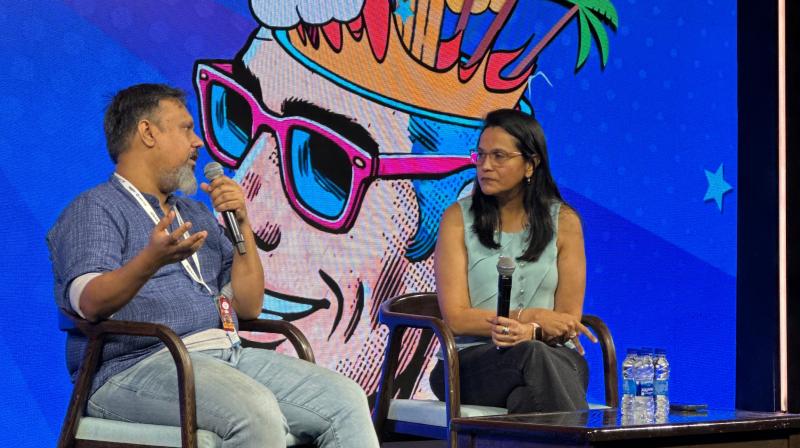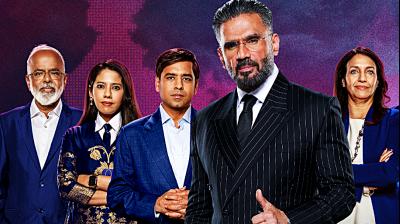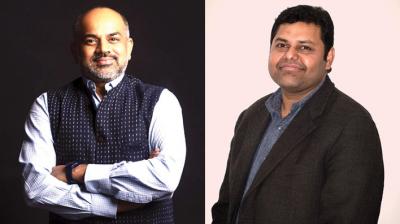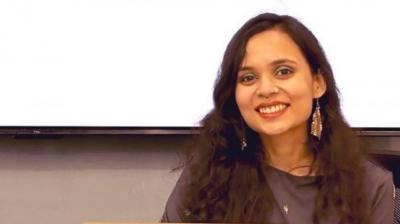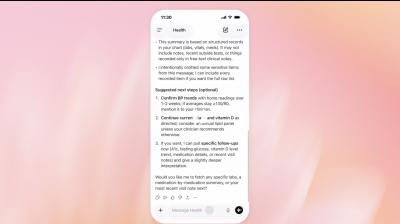On day three of Goafest 2025, Vivek Anchalia, founder and CEO, Amazing India Stories, took to the stage to explain how he’s using AI to create a full-length feature film.
The official trailer for the film was released in February 2025, and according to Achalia, the progress in the last two months has increased multifold.
Going a step back as to how the journey began, Anchalia, said, “This journey began with me making a deck for a film. I’m a lyricist and I was sometimes making songs for movies which were never made. We had those songs, but we didn’t want to upload them on the likes of Spotify as just audio. So, we used AI to make some videos and it was exciting.”
Anchalia stated that it was the first time he thought of doing a long format film.
“The journey was a year and a half long. We started with AI videos – we were seeing some which were physically incorrect. But change was happening. And that’s where AI is right now – it’s not perfect, but it’s a start. The speed it is growing at is intense,” he added.
The film trailer led to him getting an enquiry about creating an ad with the AI character created for the film.
He stated that while characters in the past have looked a little different, with Google launching Flow - a filmmaking tool available in the US (for now) - things are going to move swiftly.
Following this, Lulu Raghavan, president – APAC, Landor, took to the stage to moderate a short fireside.
Answering a question about how he learned the skills, Anchalia said, “The likes of Harvard and Wharton are around but YouTube has it all. Especially for the ones who don’t have that access.”
However, he added that one needs to spend time and sometimes that leads to 'banging one’s head against the world' to make things happen.
“When I started, my success ratio for a good image was 1:50. Now it’s 1:4. One can train it in a certain way – one can do anime, live etc. There are multiple software available. All these are made accessible to people and it’s not difficult. The difficult part is the practical bit. Sometimes the machine gives you something close to what you want – sometimes nothing at all. So, one needs to be persistent.”
Anchalia went on to state how storytelling remains incredibly important in this technological era.
“Storytelling is crucial and I’ve realised there are incredible movies. The successful ones don’t tell you about the technology – they bring out the best stories. If one is a natural storyteller or learnt the craft, it gives you a voice,” he said.
Applying it to ad content
Raghavan asked how AI can be applied to ad content and whether there are regulations around the same.
“I have read the contract and there are terms and conditions. Human thoughts and prompts can be copyrighted. I can’t ask AI to create a picture of a particular person. AI is learning the way we learnt in school. It is shown 500 images of women and then one can ask it create a picture of a beautiful woman. It’s recreating thoughts rather than copying one,” he said.
He added that clients are accepting it, but AI won’t replace everything in advertising but will be useful when budget constraints are in place.
Talking about the savings, he added, “They (savings) are incredible, but there is a cost involved too. The cost will depend on the AI artist you are working with. The cost of subscriptions is very little. One is not physically going to a location. For ads which are like montages – and there are many like this where there’s no emotional connection between two people - AI can be used and done more frequently.”
About future job cuts, he did believe that there may be a few, however, he noted that agencies will have an important role to play.
“The top 10 ad filmmakers in India don’t make their ads look the same. Here as well, the human being who is giving the prompts to the machine has the control. One then makes adjustments based on that. Those compromises don’t need to be made anymore. The reality is that AI will bring down a little bit of manpower. But agencies still have an important role to play. It’s still about communication. An agency exists today because there’s a client who has a product – the agency needs to break it down and give it out to the consumer. A machine can’t do that. The agency can provide insights. Besides, agencies should be using this as a tool,” he said.
He added that AI is getting mixed reactions from the advertising community.
“I get a lot of hate (when I talk about an AI movie). People are seeing it as a replacement for them. And then the others believe it will come further down the line and not so soon. But the business guys in the entertainment industry are taking this seriously. All the top guys are seeing where this is going and it’s a matter of time till someone understands it,” he concluded.

.jpg)
